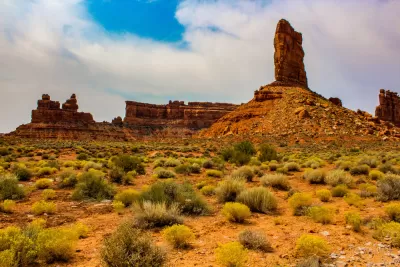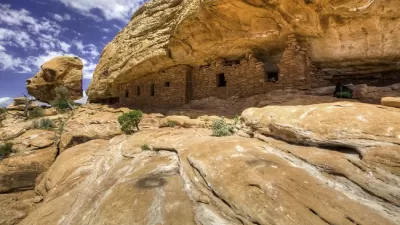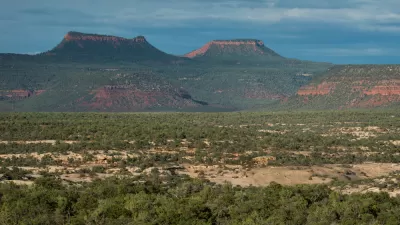A new report highlights the mechanisms the President and his Cabinet could use to protect U.S. land and water resources without going through Congress.

A report from the Center for American Progress outlines actions that President Biden can potentially take to protect U.S. lands and waters without Congress.
According to an article by Maxine Joselow and Vanessa Montalbano in the Washington Post, “The actions include designating new national monuments and national marine sanctuaries; conserving old-growth and mature forests; barring future mining and drilling on public lands; and harnessing new conservation funding from the recently passed climate law and the bipartisan infrastructure law.”
The report highlights tools available to the President and the Cabinet, such as the 1906 Antiquities Act. During his presidency, President Obama designated 26 national monuments spanning 88.3 million acres, more than any other president.
Establishing new national monuments, the report states, could protect thousands of acres of critical habitats and cultural resources. “The report also calls on Interior Secretary Deb Haaland to withdraw sensitive and sacred lands from future drilling and mining.”
FULL STORY: Report details how Biden can protect 30 percent of U.S. lands and waters by 2030 without Congress

Maui's Vacation Rental Debate Turns Ugly
Verbal attacks, misinformation campaigns and fistfights plague a high-stakes debate to convert thousands of vacation rentals into long-term housing.

Planetizen Federal Action Tracker
A weekly monitor of how Trump’s orders and actions are impacting planners and planning in America.

In Urban Planning, AI Prompting Could be the New Design Thinking
Creativity has long been key to great urban design. What if we see AI as our new creative partner?

Chicago’s Ghost Rails
Just beneath the surface of the modern city lie the remnants of its expansive early 20th-century streetcar system.

Baker Creek Pavilion: Blending Nature and Architecture in Knoxville
Knoxville’s urban wilderness planning initiative unveils the "Baker Creek Pavilion" to increase the city's access to green spaces.

Pedestrian Deaths Drop, Remain Twice as High as in 2009
Fatalities declined by 4 percent in 2024, but the U.S. is still nowhere close to ‘Vision Zero.’
Urban Design for Planners 1: Software Tools
This six-course series explores essential urban design concepts using open source software and equips planners with the tools they need to participate fully in the urban design process.
Planning for Universal Design
Learn the tools for implementing Universal Design in planning regulations.
planning NEXT
Appalachian Highlands Housing Partners
Mpact (founded as Rail~Volution)
City of Camden Redevelopment Agency
City of Astoria
City of Portland
City of Laramie




























